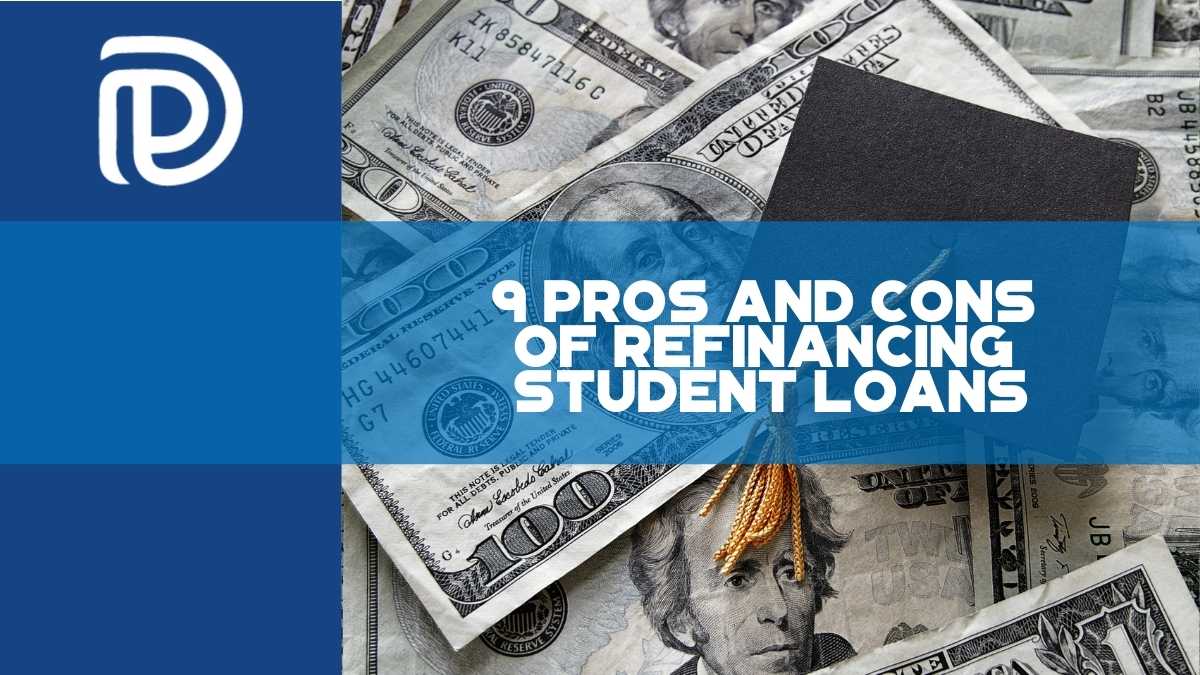Pros and cons of refinancing student loans – Typically, one of the worst parts about becoming a medical professional is starting off with a huge amount of student loan debt.
Here’s the latest breakdown according to NerdWallet.com:
- Average medical school debt: $190,694
- Average dental school debt: $287,331
- Average pharmacy school debt: $163,494
- Average bachelor’s degree debt: $28,650
Travis at The Student Loan Planner has this to say about student loan debt:
The more financial coaching I do, the more I see younger physicians and dentists wanting to put off accelerating their student loan payments and focus on purchasing a home or other consumer items.
I can tell you from first hand experience, achieving financial freedom can be attained much faster without a student loan payment. I don’t care what other “financial” people say.
As you progress along your path toward paying off those loans, you’ll probably receive at least one offer to refinance. Many of these offers typically claim that you’ll save money, but will you?
Refinancing can have some upsides, including saving money on interest and changing your monthly payments.
But with any major financial decision, it’s best to educate yourself to make the right choice.
Here are nine pros and cons of refinancing student loans to consider before making a decision.
Refinancing Student Loans – The Pros
These benefits apply whether you’re refinancing:
- federal loans and private loans together
- federal loans only
- private loans only
1. Lower interest rate
One of the biggest benefits of refinancing student loans is the potential to save money. When you refinance, you replace one or more of your current student loans with a new one.
If you meet eligibility requirements, this new loan could have a lower interest rate that could save you money over the life of your loans.
Reducing your rate by just a single point can equal thousands of dollars in savings, so it’s an important consideration to make.
Example:
Dr. A has $300,000 in student loans at 7%. He reads this article and takes action and qualifies for a new 2.5% loan. He’s excited as he’ll spend $13,500 less in interest in the first year alone.
The same monthly payment that would pay off a loan at 7% in 20 years pays off a 2.5% loan in less than 10 years. Big difference!
2. One Monthly Payment
If you have multiple loans, it maybe difficult to keep track of all of them each month. And that makes missing a payment much more likely. When you refinance, they’ll be combined into a new loan thus simplifying your monthly bill.
Even better, many refinancing programs offer automatic payment plans and can give you a 0.25% interest rate reduction for enrolling.
 3. Lowering Your Monthly Payment
3. Lowering Your Monthly Payment
Depending on how you look at this “pro”, when refinancing, you could potentially lower the monthly payments on your loan by extending the term. Depending on how you look at it, this could either be categorized as a pro or con.
Yes, the monthly payment decreases but extending the loan’s terms could mean you pay more money in interest over the life of the loan.
One of the goals I have for you on this site it to become debt-free ASAP. If you decide on refinancing and your monthly payment decreases, use the extra money saved towards the principal.
4. Flexible Repayment Terms
When you refinance your loans, you might have the option to choose a fixed or variable rate loan.
If you have a low risk tolerance, you may prefer a fixed rate loan which would provide a stable rate over a longer term.
If you take my advice and plan on repaying your loans ahead of the term, you might consider choosing a variable rate. This option could also be riskier since rates can go up at anytime but may start out lower than the fixed rate option.
5. You Can Refinance Multiple Times
Unlike student loan consolidation, you can refinance multiple times (as long as you qualify). If interest rates drop or you change your mind and want a different term, no worries. There’s nothing stopping you from refinancing again.
Refinancing Student Loans – The Cons
1. No More Federal Repayment Plans
If you decide on refinancing, your federal loans turn into private debt with a private lender and you lose access to federal programs such as:
- income-driven repayment plans
- forbearance
- Public Service Loan Forgiveness (PSLF)
Once you refinance, your loan will no longer qualify for any of these federal programs.
If you’re the type of person that can make your payments on time, then this shouldn’t be too much of an issue. But if you’re worried about your ability to repay your loan or are working toward loan forgiveness, refinancing may not be the best option for you.
2. You may end up paying more
Many people consider refinancing because of the #3 Pro above – lowering the monthly payment.
Yes, saving money each month is great but it could come with a tradeoff: Paying more over the life of the loan.
This can happen by stretching out the loan repayment; you’re paying interest on the loan for a longer period of time.
Remember, if you can get a better interest rate, consider refinancing but pay if off as fast as possible.
3. Giving up flexibility in your repayment terms
One benefit of federal loans, including Direct Consolidation Loans, is that you can alter your repayment plan but most private lenders aren’t so flexible.
Once you choose your terms, you’re typically locked into your repayment plan unless you decide to refinance again.
What’s more, only some private lenders offer the chance to postpone payments through deferment or forbearance in the event you lose your job or go back to school. Before choosing a refinancing lender, find out your options if your financial circumstances change.
4. Losing Any Remaining Grace Periods
Typically the first six months after graduating can be used as a grace period by most federal student loans. During this time, you’re not required to make any payments.
If you decide on refinancing shortly after graduation, you might lose out on that benefit if the private lender doesn’t honor existing grace periods.
Consider the pros and cons of refinancing student loans
As with any financial decision you make, only you can determine what’s best for your situation. Even though refinancing has many positives, it also brings negatives with it that also must be considered.
Make sure that you weigh out both the pros and cons of refinancing to avoid making the wrong choice.
Are you considering refinancing and want to save $$?
Click the “Get Started” link below





